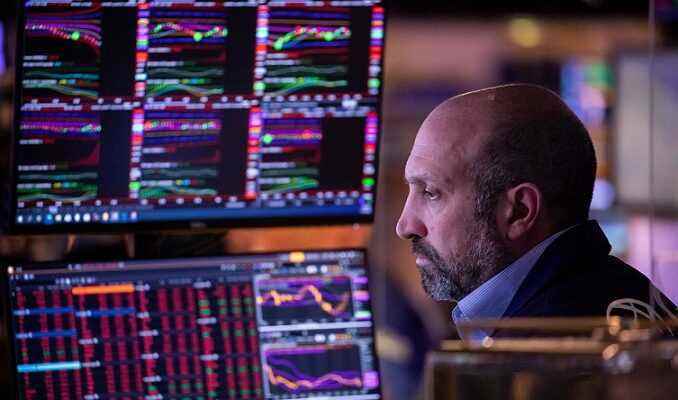The reacceleration of inflation in the United States, to a new peak of more than 40 years, accentuating the pressure on the Federal Reserve, terrified the Stock Exchange which, until then, thought that the worst was over. Last month, in the world’s largest economy, consumer prices rose 1% and 8.6% year on year, against 0.7% and 8.3% respectively anticipated by the consensus formed by Bloomberg. Record fuel prices in particular boosted inflation. Excluding food and energy, price increases reached 0.6% over one month and 6% over one year (0.5% and 5.9% estimated).
In Paris, the Cac 40 ended down sharply by 2.69%, at 6,187.23 points, the lowest for almost a month. It gives up 4.6% over the week. On Wall Street, the Nasdaq of technology stocks, the most sensitive to interest rates, fell by more than 3%. The Dow Jones and the S&P 500 lost around 2.5%.
The surprise acceleration of inflation, in global data, as well as excluding volatile elements, “reinforces the likelihood that the Fed will be forced to extend its tightening series by 50 basis points during the fall, it even opens the way to more marked hikes of 75 basis points during the meetings of the monetary policy committee in the coming weeks », warns Michael Pearce of Capital Economics. The Federal Reserve should therefore announce a 50 basis point hike in its interest rates next Wednesday, after a tightening of the same magnitude last month. Investors also fear that tensions in the labor market combined with historically high inflation will encourage the Fed to accelerate the pace of reduction in the size of its balance sheet, which began in early June. The morale of American households is also at its lowest for more than 40 years. According to the first data for the month of June, the consumer confidence index, as calculated by the University of Michigan, fell to 50.2 points, against 58.4 in May and 58 expected by the consensus.
The end of the zero rate in the euro zone
On the bond market, the yield on the three-year US bond hit 3.15%, a level not seen since November 2018. Closer to home, France’s ten-year rate has risen again, since yesterday, above 2%, the highest for eight years. Yields on bonds from the most indebted countries in the eurozone jumped even further after more offensive comments than expected yesterday from the European Central Bank. There is nervousness in the secondary debt market. Banks, major holders of debt securities, plunged on the stock market today. Societe Generalethe red lantern of the Cac 40, for example lost more than 6%.
The ECB will end its asset purchase program at the end of the month before raising its main key rates by a quarter of a point in July, a first in more than 10 years. The central bank significantly raised its inflation forecasts, suggesting an upcoming tightening, probably more marked, in September. It has also significantly lowered its growth forecast for this year. The ECB’s “hawkish” stance, which comes after the Bank of Australia raised rates by half a point on Tuesday, “reminds us that inflation comes before growth” in the monetary decisions of central banks, points out Emmanuel Cau, strategist at Barclays.
